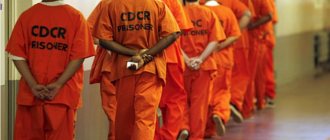The idea of this form of legal proceedings was first brought up for discussion back in the time of Catherine II. The Decembrists wrote about the need for ordinary citizens to participate in legal proceedings. The first jury trial took place in 1866. The board consisted of representatives of all classes.
When selecting candidates, the following were taken into account: age, knowledge of the Russian language, length of residence in one county, property qualifications, religion. The most high-profile case involving assessors is the trial of Vera Zasulich, who shot the mayor of St. Petersburg.
A large number of acquittals led to changes in legislation and mitigation of penalties for some crimes. This version of the judicial system existed until the collapse of the Russian Empire.
Institute in Russia
The idea of re-establishing the college was discussed at the end of the 20th century. Since 1990, jurors have considered the cases of defendants who were facing capital punishment or imprisonment for more than 10 years.
The 1993 Constitution allowed defendants to request a jury trial. This version of legal proceedings did not appear simultaneously throughout the country. The reform took more than ten years. December 1993 – first jury trial. The board appeared in the Sverdlovsk region only 10 years later.
Reference! In Russia there were two institutions: juries and people's assessors. The institution of people's assessors was abolished in 2004.
Condescension
The jury has extensive powers in the trial of serious crimes. When assigning punishment, in particular, the opinion of whether the accused deserves leniency is of particular importance. In this case, the legislation defines a special regime for imposing sanctions. The size or term of punishment for a subject who is found deserving of leniency should not exceed 2/3 of the maximum or most severe for the given act. If a crime is punishable by life imprisonment, it will not apply.
What cases are being considered?
Legislative innovations in 2008 significantly reduced the list of criminal cases that can be tried by a jury. Ordinary citizens do not pass sentence on terrorists, corrupt officials, saboteurs, participants in mass riots and under some other articles.
Now the board is not able to consider cases of defendants who are over 65 years old, and if the offender was detained at the stage of preparation for committing a crime. ATTENTION!
The defendant has the right to have his case examined by randomly selected citizens without legal education if the charge is brought under the following articles of the criminal code: 105.2, 210, 228.1, 229.1, 277, 295, 317, 357, 126, 209, 211, 227, 353, 354 , 355, 356, 358, 359, 360. And also if capital punishment cannot be imposed: 105.1, 111.
Authority
The main one is establishing the guilt or recognizing the innocence of a person. The jury's verdict is delivered in the deliberation room. They do not prescribe the size and type of punishment. Questions for jurors are formulated so that the answers to them are either “yes” or “no”. Authorized persons must decide whether it is proven:
- That the act of which the person is accused took place.
- That it was the defendant who committed the crime.
- That he is guilty.
Features of legal proceedings
A jury trial has its own characteristics:
- The court is obliged to involve jurors in the consideration of the case, even if only one of the defendants in the case filed such a petition.
- When such a petition is not filed, the trial proceeds in the manner prescribed by law.
- If the judge decides to conduct a trial with the participation of assessors, then it is impossible to appeal this decision, since it is final.
- The panel can make decisions on the case in the following instances: the Supreme Court of the Russian Federation; supreme courts of the republics; regional and regional courts; courts of federal cities, autonomous regions and autonomous districts; district (naval) military courts.
- Cases of those accused of murder or intentional infliction of grievous bodily harm resulting in the death of the victim through negligence are tried with a jury in district courts (since 2022).
Trials with the participation of a panel are usually much faster than when the decision depends only on the judge. This is due to the fact that assessors do not question all witnesses and do not consider the part of the case related to the characteristics of the defendant.
Additionally
The reserve list includes persons permanently residing in a populated area within the territory of the court’s location. This list is certified by the signature of the head of the executive body of the subject and sealed. This list, along with the general one, is published in the media of the relevant MO. The lists contain only the full names of citizens. Financial support for the powers delegated to executive and administrative structures for the formation of lists is made from federal budget funds. The procedure and amount of revenues are established by government regulations.
Who can serve as a juror?
The state provides requirements for the candidate. If a person is selected for this role, they will be required to attend meetings for four years.
Requirements for a candidate
The following persons cannot be assessors:
- under 25 years of age;
- if you have a valid criminal record;
- incapacitated or partially capable;
- without knowledge of the language in which the court hearing is taking place;
- registered in drug treatment or psychoneurological dispensaries;
- suspected or accused of a criminal offense;
- with mental or physiological disabilities that prevent an objective verdict.
One of the points is enough to refuse a candidate. The ban also includes: church ministers, civil service employees, military personnel, law enforcement officers and the judicial system.
Selection procedure
A person can perform this duty no more than once during the year. The selection of a candidate is made by a computer. For this purpose, the database of the state automated system “Elections” is used. The person is then screened based on the above requirements.
The list of selected citizens is published in local media. From this list, members of the panel are also randomly selected for a specific trial.
The citizen is notified of the results at least seven days before the preliminary hearing. During the preliminary hearing, the final jury selection takes place, which includes: the judge, the prosecutor, and the defendant. Each of them can reject two candidates without giving a reason.
In other cases, you need to justify your position. Then the jury itself selects the chairman of the panel. After which they take an oath.
Attention! For failure to appear at the trial, a member of the board bears administrative liability.
Selection procedure
Jurors are selected from lists - reserve and general. They are compiled annually by the local administration, which is located and operates in the territory where the hearing is held. The general list contains citizens who permanently reside in cities and districts of the region/region. Their number must be sufficient to ensure the normal functioning of the court. The chairman, no later than 3 months before the expiration of the powers of citizens previously included in the reserve and general lists, sends to the head of the supreme executive body of the subject an idea of the number of persons required for the proceedings. This structure formulates the order and timing of the formation of lists. The executive body also informs municipal structures of the number of citizens that should be included in the lists. The compilation of lists of jurors is carried out on the basis of personal information about the candidates. This data is located in the information base of the Unified Automated System. Citizens who cannot be accepted as jurors should be excluded from the number of selected persons.
Do you get paid for this kind of work?
Each member of the board receives material remuneration from the federal budget. Compensation is equal to half the judge's salary and is proportional to the number of days of court hearing.
The amount cannot be less than the average earnings of a citizen at his main place of work for this period. Travel and transportation expenses are also reimbursed.
An employer does not have the right to dismiss or transfer an employee to another position. The benefits provided for by labor legislation also remain inviolable. Time spent in court proceedings will be taken into account when calculating seniority.
Guarantees
During the performance of their respective duties, jurors are subject to the constitutional provisions applicable to judges. In particular, citizens are guaranteed immunity and independence. The industry law establishes the principle of remuneration for persons involved as jurors. This provision does not contradict the principle of citizens fulfilling their public duty. The law does not allow a situation in which persons suffer material damage as a result of the performance of their functions.
Making a verdict
The panel is obliged to make a unanimous decision on the case within 3 hours. Otherwise, a vote will be taken after the discussion. The decision will be made by majority vote. This is regulated by Article 343 of the Criminal Procedure Code of the Russian Federation.
If the same number of people voted for conviction and acquittal, then the verdict is in favor of the defendant. None of the members of the board can refrain from making a decision.
A guilty decision in a case is made if the majority of jurors answer affirmatively to the following questions:
- proof of the crime,
- proof of the criminal act of the accused,
- proof of the defendant's guilt.
The accused will be acquitted if at least 4 people answer negatively to one of the above questions. This rule applies to the supreme court of the republic, regional or regional court, court of a federal city, court of an autonomous region, court of an autonomous district, district (naval) military court.
If the case is heard in a district or garrison military court, then for an acquittal verdict it is enough that only 3 assessors answer negatively to at least one question.
When a decision is made to acquit the suspect, the judge is obliged to issue an acquittal. The indictment of the board may not be taken into account by the judge when passing a sentence if he considers that the actions of the defendant do not contain elements of a crime.
Then the judge dissolves the panel of assessors and issues a ruling on a new trial of the criminal case by a different panel of judges, starting from the preliminary hearing stage. This decision of the judge cannot be appealed in cassation.
A little history
The history of jury trials in Russia dates back to 1767. It was this year that the decision was made to establish this court. The question of organizing this institute was finally adopted only in 1864. This was largely facilitated by the judicial reform carried out at that time.
When the Bolsheviks came to power in the country, the jury was immediately abolished. And its existence ceased in 1917. And only after a large number of decades this institute was revived and improved. It was then that it was established that the jury would consist of twelve jurors (plus two reserve ones in case of illness or other unforeseen situation that arose among the main jurors).
Bottom line
A jury trial is a unique form of trial in which not only qualified judges, but also ordinary citizens take part in deciding on the guilt of the defendant.
This institution carries all the principles of democracy, according to which ordinary citizens of the country receive the right to officially and legally express their opinion on the merits of a criminal case.
Despite the fact that being a juror is a citizen’s civic duty, he has every right to refuse to perform the functions assigned to him. So, if you are selected as a juror, you already know how to refuse.
The range of grounds on which a person is dismissed from the position of assessor is legislated and quite extensive. However, if a citizen has not taken the appropriate oath and is just a candidate for the specified position, he will not bear any responsibility for failure to appear in court.
For some, fulfilling the above duties will be an interesting and honorable mission, which will also bring a pleasant monetary reward. Therefore, every citizen has the right to independently decide whether he should fulfill the duties assigned by the state or refuse to fulfill them.
I do not want and I will not
What to do if you are still selected as a juror? How to refuse if there are no legal grounds for doing so?
Practice shows that it is enough to submit to the court a medical certificate indicating the physical impossibility of participating in the proceedings (it is easy to obtain such a certificate from any local doctor, naming some symptoms, for example, headaches, heart pain, general poor health). In court, it will be quite difficult to verify the authenticity of this certificate (and it is unlikely that anyone will do this).
You can also refer to your religious beliefs and worldview, according to which a citizen cannot take part in deciding the fate of another person.
It is important that a citizen becomes a juror only after he takes the appropriate oath in the courtroom. From this moment on, he holds this position officially and, in case of failure to appear in court, may be subject to administrative punishment in the form of a fine, the amount of which is 25 times the minimum wage.
However, until the person has taken the said oath, he is simply a candidate for the position. But the legislation does not provide for any responsibility for candidates.
Thus, if a citizen is nevertheless selected as a juror, how to refuse is a rather simple question and can be resolved both at the legislative and practical levels.







